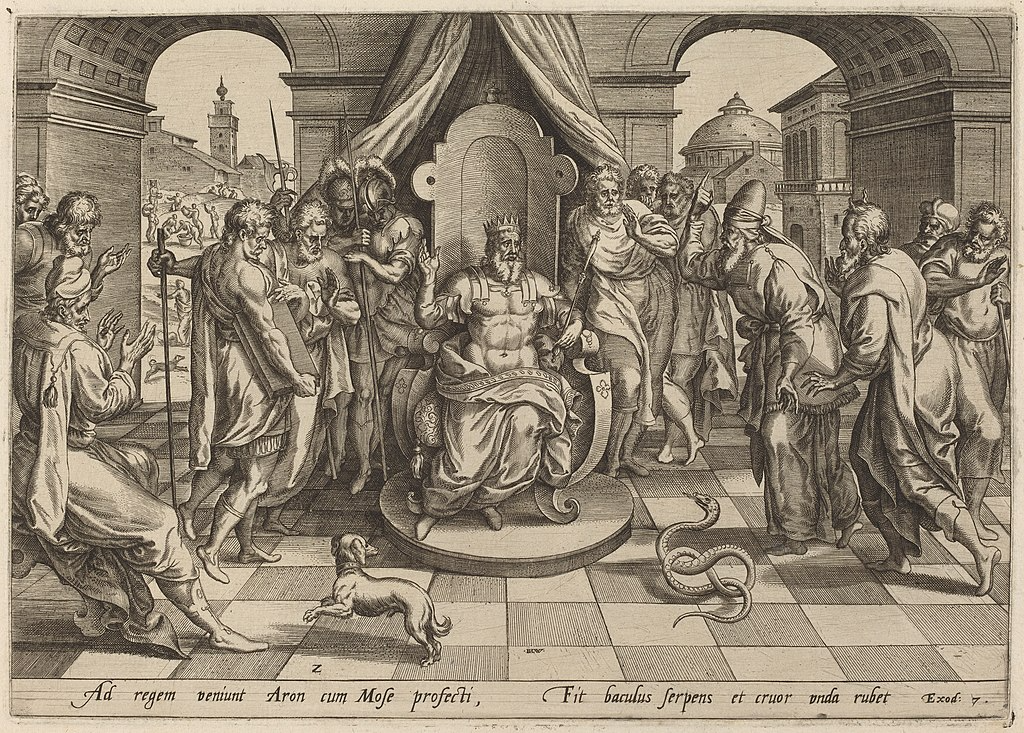Commentary on Parashat Bo, Exodus 10:1-13:16
In Parashat Bo, we find Pharaoh and Moses negotiating not, as many imagine, over freeing the Israelite slaves, but over a much more limited request: temporary release of Israelite slaves so that they can go into the wilderness to worship their God. At first, Pharaoh refuses, but his courtiers convince him to let the Israelites have their holiday. He calls Moses to him and declares: “Go, worship your Lord! Who are the ones to go?” (Exodus 10:8)
Moses answers without hesitation: All the slaves are going — men and women, young and old, and all their livestock as well. Everyone will be part of this momentous festival in the desert. But moments later Pharaoh rescinds the offer. It takes two more plagues before he summons Moses and agrees to let them go, demanding only that the Israelites leave their animals as collateral to ensure his slaves return.
Moses rejects Pharaoh’s terms, and even ups his demand, requiring Pharaoh to supply the necessary sacrifices. Moses’ demand belies a significant uncertainty: After generations of being forbidden to worship God, how will the Israelites know what they need or how to do it? He tells Pharaoh: “We shall not know with what we are to worship the Lord until we arrive.” The Israelites can only hope that God will tell them when they get there.
Just as Moses was unable to anticipate what would be required for the Israelites’ unique wilderness festival, most of us cannot anticipate what we will need when we suffer the loss of a loved one. Paraphrasing Moses, we might say: “We shall not know the full impact of loss until we are there to experience it.” Each individual we love is unique and irreplaceable. Their death takes us to a place we’ve never been.
With your help, My Jewish Learning can provide endless opportunities for learning, connection and discovery.
Transported to wholly unfamiliar territory, how might we maintain our equilibrium in the aftermath of death? What will provide us with support to navigate grief’s uncertainty? Parashat Bo also provides us with an answer.
Moses refused to go into the wilderness without having everyone and everything with him. Every individual must participate in celebrating this unknowable festival. It required the wisdom of elders who have lived much of their lives and the openness of the young who will, God willing, have most of their lives still before them. It required all the material goods the Israelites had, and even additional animals supplied by Pharaoh.
The Israelite slaves did not have much. They had no autonomy, no significant wealth, no lived memory of worshiping their own God. But Moses found what they did have — each other. When we are forced to take an unprecedented journey to a place we’ve never known, to a kind of grief that is new and for which there is no possible way to prepare, we can learn from Moses in this moment. We can look around and martial what resources are available to us — especially our communities — and not discount anything: the young, the old, those who are close, those we haven’t yet been brave enough to connect to. Even our enemies may have something to offer us in this moment. It is on us to be brave enough to reach out and make use of them all.
This article initially appeared in My Jewish Learning’s Reading Torah Through Grief newsletter on Jan. 27, 2023. To sign up to receive this newsletter each week in your inbox, click here.
Looking for a way to say Mourner’s Kaddish in a minyan? My Jewish Learning’s daily online minyan gives mourners and others an opportunity to say Kaddish in community and learn from leading rabbis.



